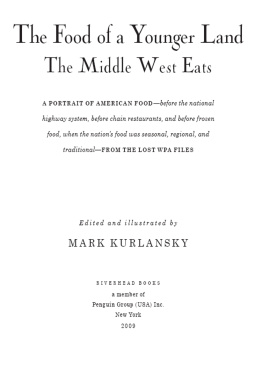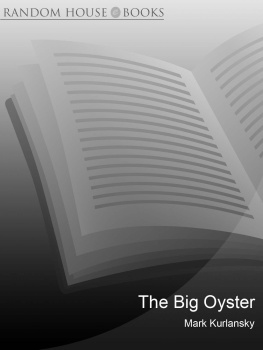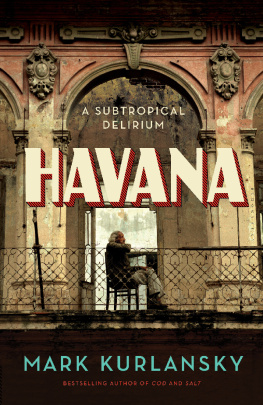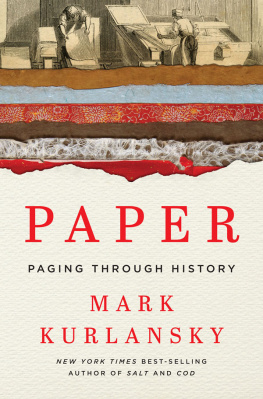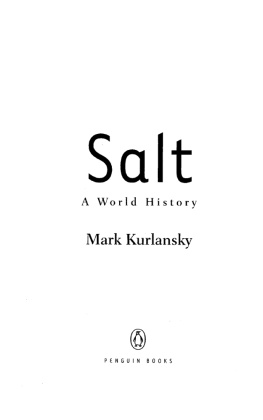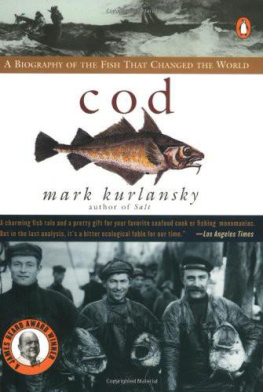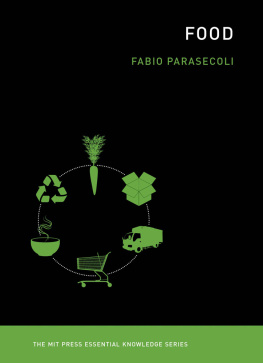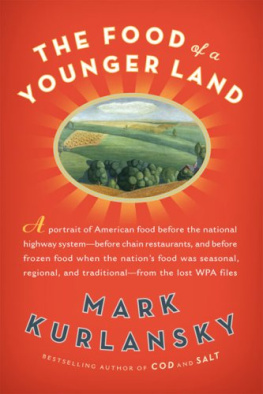The Last Fish Tale: The Fate of the Atlantic and Survival in Gloucester, Americas Oldest Fishing Port and Most Original Town
The Food of a Younger Land
The Middle West Eats
A PORTRAIT OF AMERICAN FOOD before the national highway system, before chain restaurants, and before frozen food, when the nations food was seasonal, regional, and traditional FROM THE LOST WPA FILES
Edited and illustrated by
MARK KURLANSKY
RIVERHEAD BOOKS
a member of
Penguin Group (USA) Inc.
New York
2009

RIVERHEAD BOOKS
Published by the Penguin Group
Penguin Group (USA) Inc., 375 Hudson Street, New York, New York 10014, USA Penguin Group (Canada), 90 Eglinton Avenue East, Suite 700, Toronto, Ontario M4P 2Y3, Canada (a division of Pearson Canada Inc.) Penguin Books Ltd, 80 Strand, London WC2R 0RL, England Penguin Ireland, 25 St Stephens Green, Dublin 2, Ireland (a division of Penguin Books Ltd) Penguin Group (Australia), 250 Camberwell Road, Camberwell, Victoria 3124, Australia (a division of Pearson Australia Group Pty Ltd) Penguin Books India Pvt Ltd, 11 Community Centre, Panchsheel Park, New Delhi110 017, India Penguin Group (NZ), 67 Apollo Drive, Rosedale, North Shore 0632, New Zealand (a division of Pearson New Zealand Ltd) Penguin Books (South Africa) (Pty) Ltd, 24 Sturdee Avenue, Rosebank, Johannesburg 2196, South Africa
Penguin Books Ltd, Registered Offices: 80 Strand, London WC2R 0RL, England
Copyright 2009 by Mark Kurlansky
All rights reserved. No part of this book may be reproduced, scanned, or distributed in any printed or electronic form without permission. Please do not participate in or encourage piracy of copyrighted materials in violation of the authors rights. Purchase only authorized editions.
Grateful acknowledgment is made to reprint the following images from the Library of Congress, Prints and Photographs Division, FSA/OWI Collection: LC-USZ62-135594; LC-USF34-017515-E (Dorothea Lange); LC-USF33-12379-M1 (Russell Lee); LC-USF33-003442-M2 (Arthur Rothstein); LC-USF33-013190-M4 (Russell Lee); LC-USF33-012964-M5 (Russell Lee); LC-USF33-011941-M4 (Russell Lee); LC-USF33-003234-M3 (Arthur Rothstein); LC-USF34-035370-D (Russell Lee).
Library of Congress Cataloging-in-Publication Data
The food of a younger land: a portrait of American foodbefore the national highway system, before chain restaurants, and before frozen food, when the nations food was seasonal, regional, and traditionalfrom the lost WPA files/edited and illustrated by Mark Kurlansky.
p. cm.
ISBN: 1-101-10118-0
1. Cookery, AmericanHistory. 2. Food habitsUnited StatesHistory. 3. Cookery, American.
I. Kurlansky, Mark. II. United States. Works Progress Administration.
TX715.F685 2009 2009008100 394.1'20973dc22
The recipes contained in this book are to be followed exactly as written. The publisher is not responsible for your specific health or allergy needs that may require medical supervision. The publisher is not responsible for any adverse reactions to the recipes contained in this book.
While the author has made every effort to provide accurate telephone numbers and Internet addresses at the time of publication, neither the publisher nor the author assumes any responsibility for errors, or for changes that occur after publication. Further, the publisher does not have any control over and does not assume any responsibility for author or third-party websites or their content.
To the memory of Studs Terkel, one of the last of them,
who talked, listened, mixed a martini, told a story, cracked
a joke, thought through an issue, and fought the good fight
better than most anyone else. Studs, you left just as I began
to hope you would live forever. Maybe you will.
Never play cards with a man called Doc. Never eat at a place called Moms. Never sleep with a woman whose troubles are greater than your own.
NELSON ALGREN , A Walk on the Wild Side, 1956
T his book is not an attempt to produce what America Eats might have been if it had been edited and pieces selected. Instead, it is a sampling of the broad and rich mountain of copy that the dying Federal Writers Project generated for this, their final effort. I made selections of the most interesting piecespoetry, short stories, essays, interviews, and recipesbecause to publish all of it would have required several volumes. The reader can experience the archaeologists adventure that I had sifting through these unedited and unpublished manuscripts with all their blemishes, including misspellings, bad English, bad Spanish, and chaotic recipes that sometimes require a cooks imagination to make work. In the process, forgotten cuisines and a vanished world are unearthed. This is the fun of finding a seventy-year-old raw manuscript.
CONTENTS
Introduction
W hen someone says to me, I went to Chicago last week or I went down to Virginia this summer, a question always comes into my mind, though I often resist asking it: What did you eat? Anything interesting?
I would like to know what politicians eat on the campaign trail, what Picasso ate in his pink period, what Walt Whitman ate while writing the verse that defined America, what midwesterners bring to potlucks, what is served at company banquets, what is in a Sunday dinner these days, and what workers bring for lunch. What people eat is not well documented. Food writers prefer to focus on fashionable, expensive restaurants whose creative dishes reflect little of what most people are eating. We know everything about Paris restaurants but nothing about what Parisians eat. We know little about what Americans eat and less about what they ate.
A few years ago, while putting together Choice Cuts , an anthology of food writing, I discovered to my amazement that government bureaucrats in Washington in the late 1930s were having similar thoughts. But these were not typical bureaucrats because they worked for an agency that was unique in American history, the Works Progress Administration, or WPA. The WPA was charged with finding work for millions of unemployed Americans. It sought work in every imaginable field. For unemployed writers the WPA created the Federal Writers Project, which was charged with conceiving books, assigning them to huge, unwieldy teams of out-of-work and want-to-be writers around the country, and editing and publishing them.
After producing hundreds of guidebooks on America in a few hurried years, a series that met with greater success than anyone had imagined possible for such a government project, the Federal Writers Project administrators were faced with the daunting challenge of coming up with projects to follow their first achievements. Katherine Kellock, the writer-turned-administrator who first conceived the idea for the guidebooks, came up with the thought of a book about the varied food and eating traditions throughout America, an examination of what and how Americans ate.

